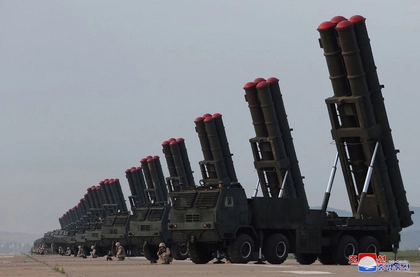The outcome of Moldova’s presidential election this weekend, combined with its EU referendum, could fundamentally reshape not only Moldova’s future but the geopolitical landscape of Eastern Europe.
Incumbent president Maia Sandu of the center-right Party of Action and Solidarity heads the polls, following a campaign that has focused on the country’s domestic struggles and national security concerns.
JOIN US ON TELEGRAM
Follow our coverage of the war on the @Kyivpost_official.
The referendum represents an even more decisive moment for Moldova’s ambition to pursue a democratic, western-facing future in Europe. Moldova applied for EU membership and was granted candidate status in 2022. The following year the European Council announced the opening of accession talks and the country set a target date of 2030 for EU accession. This Sunday’s referendum seeks approval for a constitutional amendment that would pave the way for EU membership.
With recent polls suggesting that some two thirds of the population intend to participate in the referendum and a small majority favoring the proposition, the nation appears to be leaning towards a European future.
As we all know, the question of European integration is a complex and controversial business, with strong views and arguments on all sides. It is rightly a matter for Moldovans to debate and resolve. However, as in other electoral contests in the region, there is strong evidence of interference from Russia, which is once again deploying sophisticated tactics to undermine trust not just in the EU but in the democratic process itself.

Kim’s Human Blitzkrieg – Ukrainian Troops Reveal North Korean Tactics in Kursk
One prominent campaign, “Nu Acum” (“Not Now”), urges voters to vote No, arguing that Moldova should delay its EU decision. It is spread via social media, including Facebook, Telegram, and YouTube, and often shares pro-Russian and anti-EU content.
Financial incentives are also at play, with reports suggesting that individuals linked to fugitive pro-Russian oligarch and politician Ilan Shor are offering payments for anti-EU activities. A Telegram bot called “STOP EU” reportedly recruits activists to campaign against European integration, offering financial rewards for various actions.
Demonstrations and provocations have also been part of the strategy. In early September, two individuals allegedly linked to Ilan Shor’s network were arrested for organizing unrest during a protest outside the Central Election Commission.
Additionally, in the pro-Russian autonomous region of Gagauzia, there have been reports of illicit financial flows whereby pensioners and public sector employees can receive €100 supplements using Russian MIR cards (the Russian alternative to Visa and Mastercard) – a system not officially supported in Moldova. While not directly influencing the referendum, Shor appears to be using Russian money to gain public support in the region. They aim to demonstrate that Russia cares more about working people and pensioners than their own government.
The referendum’s implications extend far beyond simple EU membership.
As former Czech President Václav Havel once noted, “Europe is no longer about imagining a better future; it’s about preventing a worse one.” For Moldova, a closer relationship with Europe represents not just economic opportunities but a crucial security umbrella in the face of regional stability and the ongoing war in Ukraine.
The international community, particularly the EU, watches closely. Moldova’s journey represents more than just one country’s path to a European future – it symbolizes the ongoing struggle between democratic values and authoritarian influence in Eastern Europe. The outcome of this electoral process could set precedents for other nations in similar positions.
Despite ongoing debates about EU enlargement and the economic challenges of integrating less affluent nations, the strategic value of countries like Moldova and Ukraine to European security should not be underestimated. While the immediate economic benefits may be limited, the geopolitical advantages of embracing these nations are substantial.
The potential costs of excluding these nations – possibly pushing them further into Russia’s sphere of influence – could far outweigh the short-term economic considerations of inclusion.
By accepting and encouraging countries vulnerable to Russian influence, the EU can effectively counter the expansion of Russian power along its eastern borders. This approach not only strengthens the EU’s defensive posture but also promotes stability and democratic values in a historically volatile region.
This article originally appeared on: ConservativeHome.com
The views expressed in this opinion article are the author’s and not necessarily those of Kyiv Post.
Lord Ashcroft KCMG PC is an international businessman, philanthropist, author and pollster. For more information on his work, visit lordashcroft.com. Follow him on X/Facebook @LordAshcroft.
You can also highlight the text and press Ctrl + Enter










